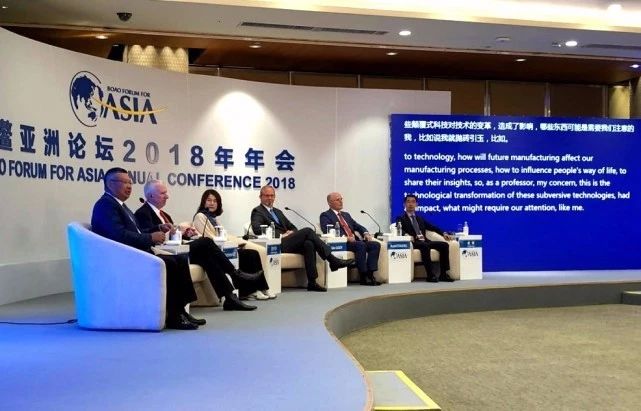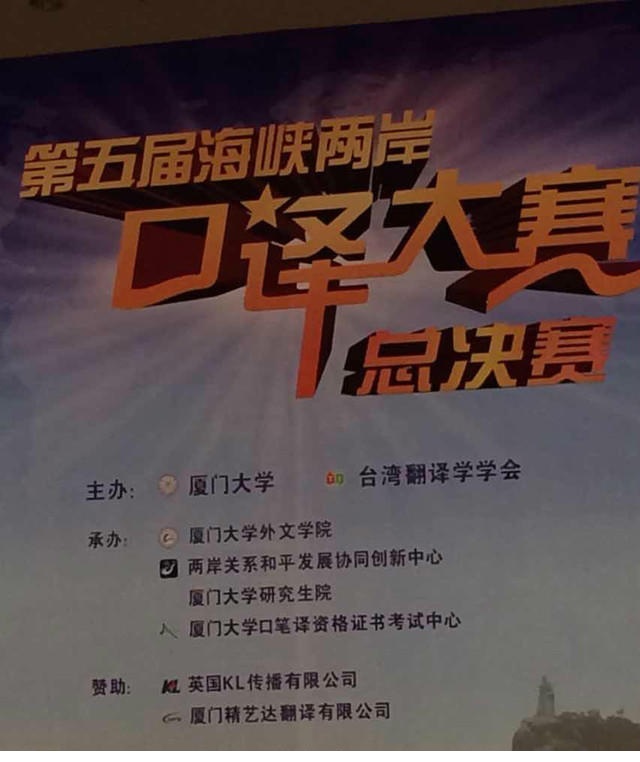ZHU TONG THE INTERPRETER
广东外语外贸大学英文学院教授
冯芝林
Overwhelmed by the interpreter’s performance at Premier Zhu Rong-Ji’s press conference held on March 19th, 1998, the viewers of the conference’s broadcast asked each other “Who is she?” Her name is Zhu Tong, interpreter with the Foreign Ministry, and Vice Director of the Ministry’s Protocol Department. Her consecutive interpreting was considered excellent by both professionals and the general public for the accurate and complete translation of the one and half hours’ questions and answers.
Zhu Tong impressed the general public with her articulate and fluent manner of delivery. She remained self-assured by keeping her interpreting pace evenly controlled throughout the conference. The success of Zhu Tong’ interpreting performance was mostly due to herself-confident demeanor in front of a large audience and such important panel members. But, for the discerning eye and fault-finding ear of a professional interpreter trainer, Zhu Tong’s performance at the conference offers a lot more for consideration beyond those aspects mentioned above.
Surely Zhu Tong’s consecutive interpreting appealed to the listeners in terms of rhythm, which implies a skillful control of pace. This entails two skills: the interpreter must maintain an even speed of 2.5-3.0 words per second, while interspersing the speech with pauses between sentences, in an evenly sustained manner throughout the entire interpreting performance.
In interpreting, the determination of the number of words per second depends on at least three factors:
1— The physical environment of the venue
2— The genre of the text
3— The speed of the speaker
Considering the specific demands of a press conference on the interpreter, 2.5to 3 words per second represent an optimal speed to obtain fluency and clarity. A faster pace would create tension of concentration for both, interpreter and listeners, while a slower pace would be trying on the listeners’ patience and attention span. An optimal situation consists in holding the listeners’ attention, without boring or challenging them too much.
Inexperienced interpreters may find it difficult to maintain an even flow of words, so they often tend to go very fast when the subject matter seems easy, and slow down considerably when the level of difficulty increases. This intermittent speeding up and slowing down of speech causes anxiety not only to the audience but to the speaker as well, impairing the interpreting performance.
One other factor, crucial to a successful interpreting performance, is an adequate working knowledge of the subject matter on the interpreter’s part. A good command of the subject matter allows the interpreter to activate a response in a split of a second, upon command, and retrieve information almost simultaneously with the utterances of the speaker. At the press conference mentioned above, eleven questions were asked by reporters from 11 different news agencies in the world. At a press conference, the questioner is usually asked to identify him/herself and the agency they represent. This requires that the interpreter be well familiar with the names of all the major agencies in the world. Otherwise the interpreter may fail to identify the agencies in their translation. Should this happen he/she would let down the speaker and the audience because they may infer from such failure that the interpreter is incompetent. This working knowledge is like the part of an iceberg below the ocean surface and the performance of the interpreter is like the part above water. Even a moderately successful performance must rely on a great amount of knowledge, which includes bilingual familiarity with terminology in various areas of knowledge. Take the translation of people’s names. Very often, the translation of a name does not resemble the original name in terms of sound due to a variety of reasons. This requires that the interpreter have an extra stock for exceptions beyond the usual rules for translating people’s names.
A good case in point was Zhu Tong’s translation of the name Xiao Wanchang-pronounced this way by Qian Qichen, another member of the panel, while answering the question raised by a Taiwanese reporter on cross straits relations. Had Zhu Tong spelled the name out in Pin Yin, she would have betrayed her limited knowledge of major figures in cross strait relations. But she gave instead the proper translation of the name, which is ‘Vincent Xiu’. Just the translation of a name could be a test stone for the interpreter’s professionalism. This may sound like an exaggeration, but many interpreters meet their Waterloo in the incorrect translation of names of people.
In the eleven questions and answers included in Zhu Rong-ji’s press conference, there were many terms whose translation could have challenged any competent interpreter. But, Zhu Tong did not stumble over any of them. The subjects covered were numerous: elections, reform of state-owned enterprises, policy of the new cabinet which included jargons such as “one ensuring, three putting-into-place, and five reforms”, financial crisis in Asia, Hong Kong’s future, China and the World Trade Organization, trade with Taiwan, potential of the Chinese market, etc…
Worth mentioning, in particular, is the translation of the Premier’s determination in pursuing his mission of economic reform, which read as follows:
“No matter what is waiting ahead of me, being landmines or an abyss, I will brace my trail with no hesitation nor misgivings, and I will do my best to devote myself to the people and the country to the last day of my life.”
Many more examples could be given to demonstrate the accumulation of stock phrases, and of years of painstaking efforts meant to strengthen the formidable memory of an excellent interpreter.
The training of an interpreter involves tedious work, such as the memorization of thousands of words and phrases in two languages so that they come to mind immediately when he need arises. Is there any shortcut to such an attainment? Not that I know of. I believe that Zhu Tong herself, if asked, would answer the same: Honest memorization work. Of course equally important is very broad range of reading in all sorts of fields of knowledge in general and up-dated reading of current affairs in particular.
One attribute indispensable to a good interpreter is a strong long-term memory. Anything that stays in one’s mind for longer that two seconds is considered long-term memory material according to psycholinguists. Well qualified interpreters are capable of reproducing a very long text into the target language completely and accurately. While memorization playas major role in the reproduction, other skills are equally important. Skills like analyzing and restructuring the incoming chunks of information according to their logical coherence.
The training of an interpreter consists in cultivating such skills as memory, note taking, voice projection, eye contact, logical coherence, capacity to summarize and, switch numbers, etc…And the development of logical coherence is among the most fundamental training skills. It is the capacity of grasping the speaker’s argument as a coherent whole that allows the interpreter to create the mental links that facilitate the memorization of the text’s specific content. Zhu Tong’s performance bespeaks of a formidable and well trained memory, an amazing combination of a natural gift and sustained effort. And, in my opinion, due more to the latter than the former.
The tacit cooperation between interpreter and speaker is also an indispensable factor in the success of an interpreting performance. Zhu Rong-ji’s answers to the questions were to the point, well organized, logically sound and delivered at an even and comfortable pace. These qualities must have surely had a positive impact on the interpreter, by making her work easier.
Imagine an old-fashioned high-ranking official reading aloud from a manuscript! Such a speaker would greatly increase the difficulties, with possible disastrous results. The written speech tends to be formal, thus not easy to be rendered orally, and the reading aloud of a written text makes it less easy for the interpreter to manage the restructuring than if the text wee delivered in a conversational tone. Zhu Tong was fortunate to interpret for a speaker like Premier Zhu Rongji, who showed consideration and understanding of the interpreter’s task by pausing at the right moment, allowing her to take over with the translation.
Having said all this, I must now admit to a strong belief: there has never been and never will there be a perfect interpreting performance. In watching the video tape of the press conference one can always find room for improvement. Thus, there are two observations I wish to make. one is about Zhu Rong-ji’s answer to the question of the Indian reporter, who asked Zhu what message Zhu would like to give to India’s new prime minister taking office that day. In his message, among other things the Premier expressed his willingness “to seek advice” from the Indian Prime Minister, but this idea was translated “I will learn from him.”
There is a subtle difference between what Zhu Rong-ji said what was translated. Seeking someone’s advice does not imply being committed to acting upon such advice. A piece of advice is an opinion given to an interlocutor who may or may not act upon. But, the verb “to learn”, which means “to gain knowledge”, carries a stronger implication of wanting to do what the other has already done.
Another observation concerns the speed of the interpreting performance. The speed of the translation could have been raised from 2.5 words per second, to about 3.0 words per second. This would have kept a good level of comfort for the listeners, while giving the interpreter enough time to catch her breath without stress. At the same time, such a pace would also have allowed sufficient time for one more question and one more witty response from the Premier. This, of course, would have thrilled us, — professional trainers of translators and interpreters—for it would have been an unprecedented professional feat, on the part of a top interpreter as Zhu Tong.















